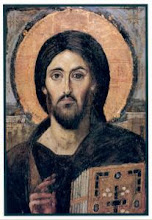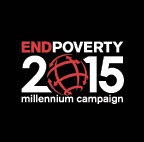The road (if one can call it that) was one of the worst I have ever ridden. The ruts and holes were enough to shake and rattle any vehicle to pieces. Because of the lack of rain and extremely dry conditions, the dust from the dirt road created an impenetrable screen that at times severely impaired our ability to see beyond a few feet in front of us. As we sped along, the car of my good friend and colleague Fr. Yohana Mazaguni sounded as if it would fall apart right there on the road. Interestingly, a little later in the day while standing outside of St. John’s Bible College in the Anglican Diocese of Shinyanga, Tanzania, East Africa, Bishop Charles Ngusa told our small group of Virginia ambassadors (and one Californian) because of the poor road conditions, each Saturday he had a standing appointment with his auto mechanic to get all of the lose screws tightened on his vehicle. What an adventure; just a few days earlier I discovered not only were some of the paved roads as bad as the dirt ones, but saw with my own two eyes the only traffic light in the entire northeastern portion of Tanzania. It was located in the city of Arusha and was apparently not only a novelty for the local inhabitants, but a mystery as well.
The trip to Arusha was an adventure all of its own. The twelve hour bus ride that began at 6am on my first morning in the country was an experience that I shall not soon forget. Many of us are probably familiar with the saying, “He/She went around their elbow to get to their thumb,” (actually there is another more familiar translation of this saying, but believe I’ll pass on that version). We left Dodoma, the capital city of Tanzania on the most patched together and crowed bus that I had been on since peak class time at the University of Georgia. Our destination was to travel north east to the city of Arusha, but not in a conventional or direct way. We actually drove south on one of the few paved roads in the country in order to go north. Ironically it was the same road that we flew over in a charter Missionary Flight Association plane from Dar es Salam to Dodoma in which I prophetically stated out loud to the other passengers – “Boy, I sure am glad we don’t have to drive down that road to get to Dodoma!” God certainly has a sense of humor.
If this sounds strange, believe me, it gets even more bazaar. Realizing in my extreme jet lagged brain that I was not only the sole American aboard the bus, but probably the only blond haired, blued eyed, Caucasian person for miles and miles as well, my sleep deprived system hit an all new high on the anxiety charts. Naturally I didn’t speak Swahili, so I had to rely on Fr. Yohana to tell me what the conversations were about that surrounded me. Apparently, I was a true anomaly in the eyes of the locals. According to Yohana the people on the bus were amazed to see a white American riding the public bus (I was proudly wearing my Georgia Bulldogs baseball cap). Apparently most foreigners rent cars, charter a plane or ride in cabs to their destinations. Naturally at first I had no clue what they were saying; only catching the word “Americana” every so often.
The trip was long, tiring and gave me a true sense of the difficulty the average person faces when it comes to travel in Tanzania. Between the road blocks every ten miles, the bribes given to the policemen at every stop, the crowded bus and beer guzzling passengers (there was a real party beginning to ensue) I witnessed and experienced Tanzania just as the average African does each day. Trust me, it is a challenging lifestyle that tested me to my limit, yet amazingly my African friends smiled, relaxed and took everything in stride.
Tanzania is beyond doubt a third world country in every sense of the word. Things such as electricity, water (yes I did say water) medicine, automobiles and fuel; basic necessities that we often take for granted are actually luxury items for much of the country’s inhabitants. Did I mention water? People in the outlying villages can spend up to 90% of their daylight hours searching for food and water; mainly water. Sadly these same people are often forced to drink from the same well (more like a ditch) that the livestock bath and drink. In some areas the living conditions are so deplorable that disease is a real concern and personal hygiene is simply nonexistent. Electricity is sketchy at best. Many homes do not have service due to either their rural location, or because they simply can’t afford to pay for the service. We drove past one particular village that had no electricity despite the fact that it was located right next to a huge power line grid.
To state the obvious, the infrastructure in Tanzania is weak, corrupt and poorly organized. There is no middle class, therefore leaving the country with a huge financial and social gap between those “That have” and “Those who don’t have.” Many of the top government officials are dishonest and driven by selfish greed; that or they simply don’t care about the basic needs of the average population.
Perhaps worst of all is the poor medical treatment and lack of basic medicines. Doctors and hospitals are few in number or simply nonexistent in many areas of the country. Buck Blanchard (The Missioner for Global Mission for the Diocese of Virginia) and I experienced firsthand the average person’s dire need for adequate and basic medical care. The very afternoon we returned to the city of Shinyanga from St. John’s Bible College, our car was waved down in a small village by an adolescent boy who charged into the street in front of Fr. Yohana’s car. He was desperately signaling for us to stop. To the unknowing observer such as me, this young man appeared to be just another person seeking to either sell something, or ask for money. This was far from his purpose on that October afternoon. Fr. Yohana stopped the car, got out and spoke to the young man. He then disappeared into a red mud brick hut. Yohana soon emerged with a very young girl holding her injured infant son. The baby had somehow fallen, hit his head and was bleeding badly from his injury. We quickly learned that over the past two hours the family had desperately tried to stop the ugly gash from bleeding, but were unsuccessful. The baby’s little head was wrapped in a blood soaked cloth as he quietly stared into space through his big dark eyes. Sadly this kind of tragedy is something that the average folks in Tanzania live with everyday.
We soon arrived at the hospital in the city of Shinyanga, and our fear for the child went from bad to worse. The hospital conditions were absolutely deplorable. Sanitation was apparently not a concern, and the rooms smelled of urine. The hospital ward was full of patients of all ages. Men, women and children alike were all stretched out on gurneys with only a few nurses tending to their desperate needs.
I wish I could say that the child was fine and everything turned out well, but the fact is I don’t know. He and his mother certainly remain in my prayers. What I am certain is that Tanzania is an impoverished third world country whose people need our help and support. While our dollars certainly make a difference, they are only part of the solution. The church leadership and congregations desperately long to be in actual community with us. They wish very much for us to visit them and build lifelong relationships. They want us to share our faith, ideas and talents with them, so that they might do the same with us.
The people of the Anglican Church of Tanzania are strong in their love of Christ, and determined to persevere in their faith. Despite their abject poverty they are a joyful people, who greeted us with genuine hospitality and sincere smiles. It is my hope that with the Diocese of Virginia, Emmanuel will continue to build on our wonderful relationship with the Anglican Church of Tanzania, especially the Diocese of Shinyanga. While the Episcopal Church, USA has much to offer our brothers and sisters in Christ in sub-Saharan Africa, believe me, the love and grace we receive in return far exceeds anything we could have imagined or realized.



























No comments:
Post a Comment